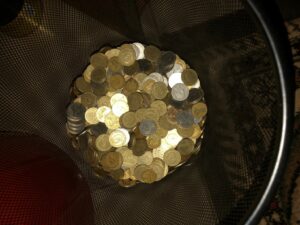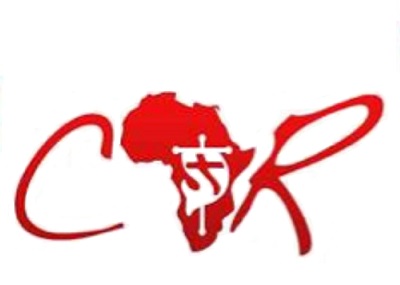

Fr. Yohana and I spend a great deal of time together. One of our jobs is to drive to Musoma (about a one-hour drive) to purchase food and items for the residence once a week. Food and household items are taken from the collections that we receive on Sundays. The people are as generous as they can be, but the collections are not enough to pay all the expenses: vehicle fuel and repairs, electricity, food, and monthly allowances. As an example, two weeks ago I was at the outstation of Kizaro-Matongo. There were about 50-60 people gathered for the liturgy. The outstation is quite remote. The people are enthusiastic and quite wonderful. I love being there for Mass. The person who counts the money, gave me the collection to take back with me. I looked quickly and saw that it was about $5.
We have many small coins from the collection, and most vendors in Musoma will not take the coins. The first thing that Yohana and I do is sort out coins at home. Two 500-shilling coins, or five 200-shilling coins, or ten 100-shilling coins, or twenty 50-shilling coins make a 1,000-shilling note. So, we gather each kind of coin in bags and then when we get to the market, we go around the market to exchange these coins for larger currency.
These two women—both of whom sell rice—are our best customers! You can see the stacks of coins that we are exchanging for bills.
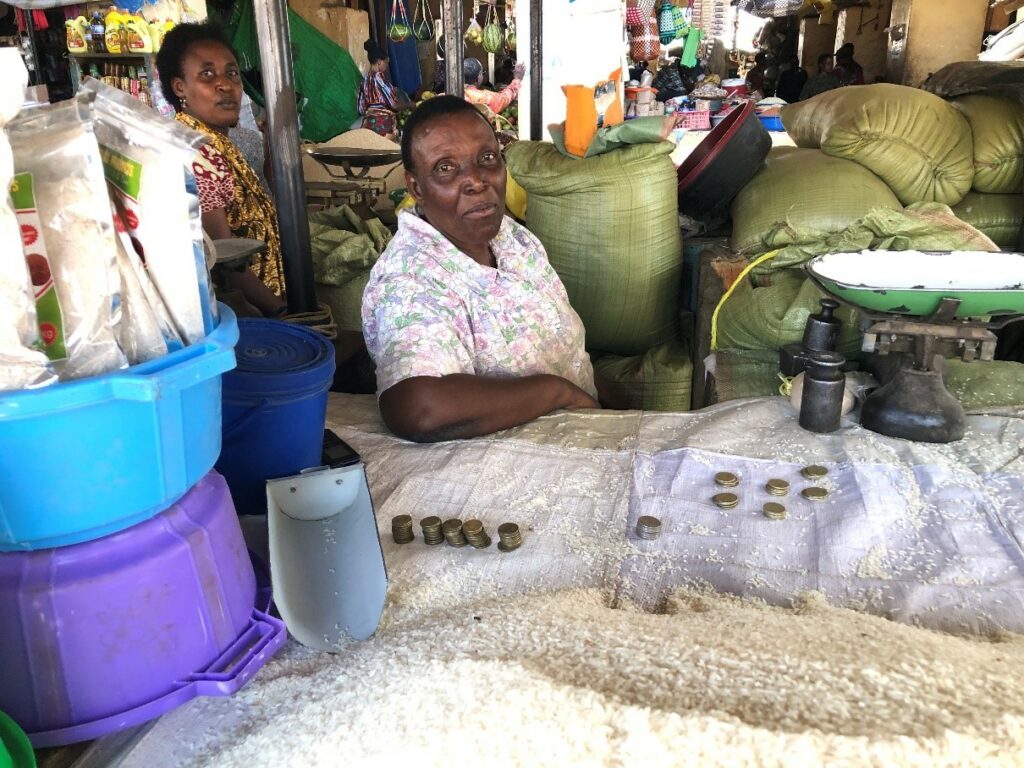
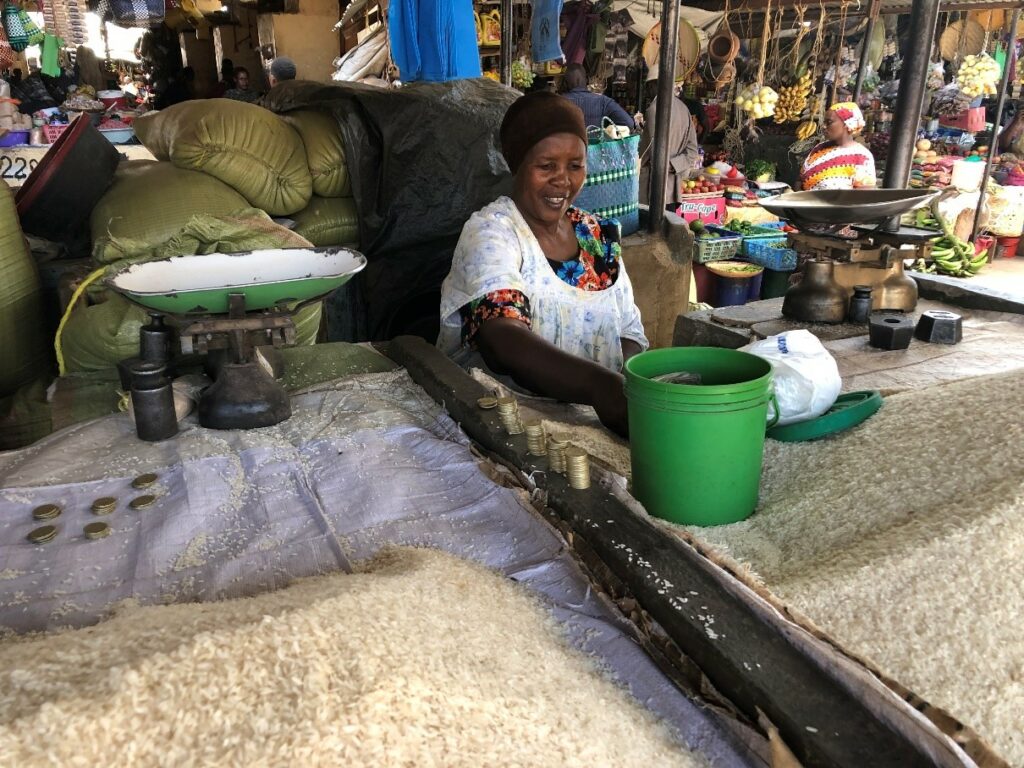
One of the shops where we exchange coins for larger currency.
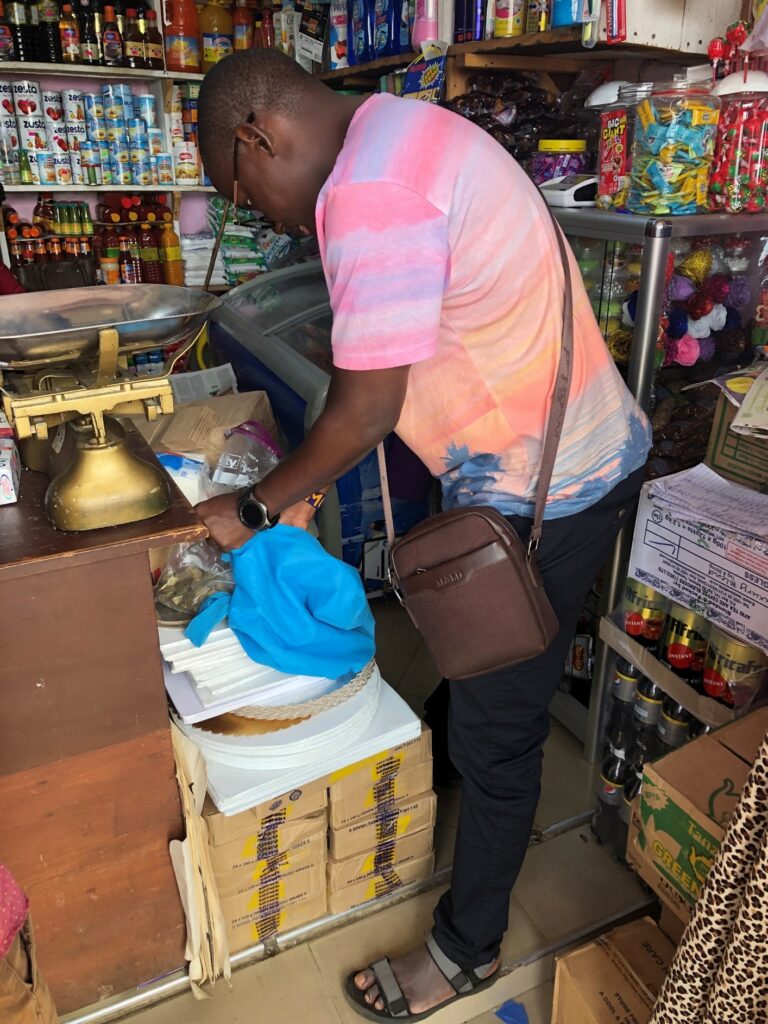
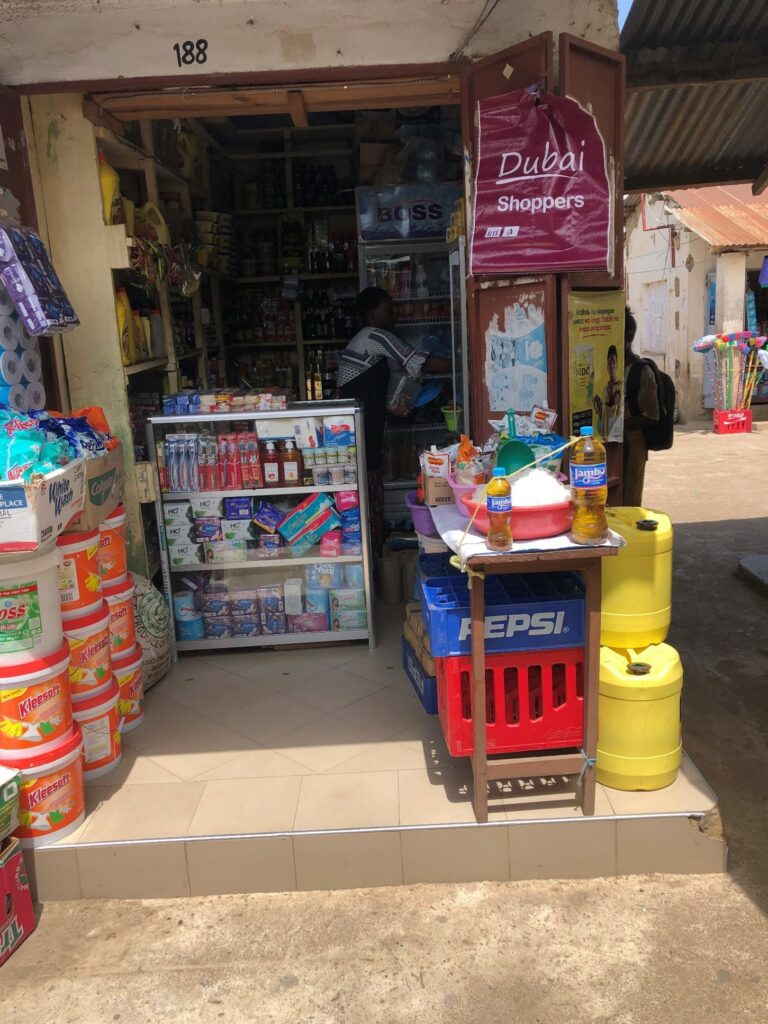
This is the market shop where we buy most of our fruit and vegetables. The woman who runs it is wonderful and she is very patient with me as I try to count out change and make payments in Swahili.
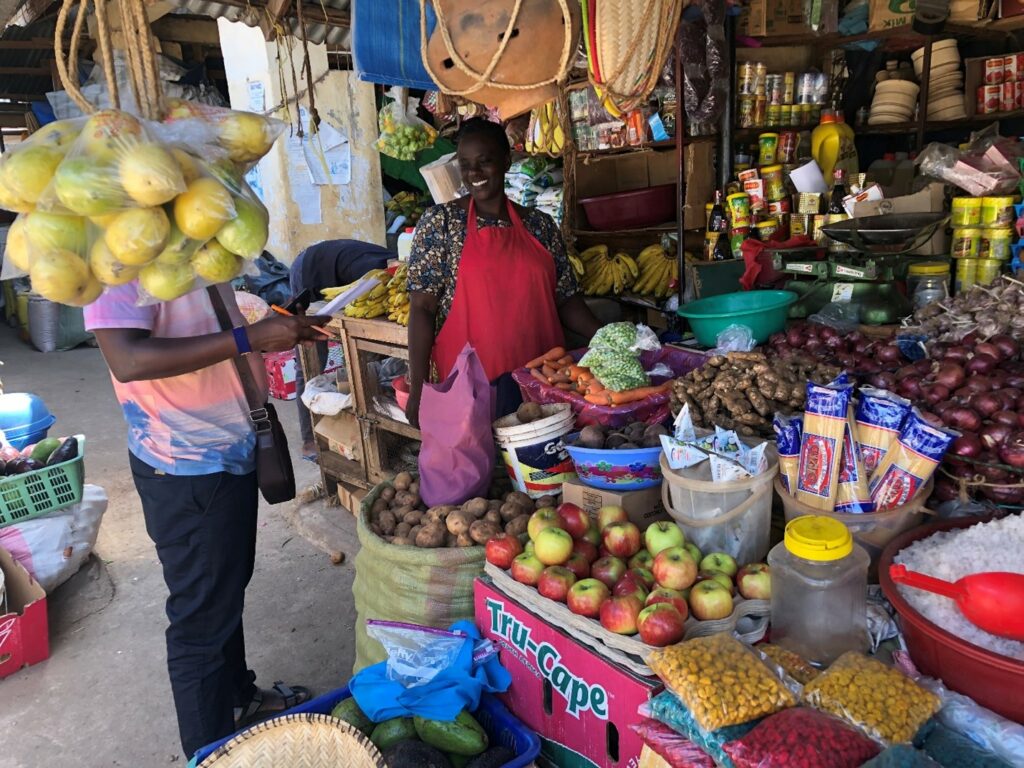
You can see that she has potatoes, red onions, carrots, peas, bananas, passion fruit (hanging), avocadoes, garlic, limes. lemons, pasta, coconut juice, peppers, and more. But she also has a large variety of spices, which you can see in the background.
We usually buy some apples each week. They are very good—sweet and crisp. They are on the expensive side—about 50 cents each—but they are a nice treat!
She has a very welcoming smile and a warm heart. Fr. Yohana likes to tease her about the cost of everything, but she is very fair. Taking away two very large bags of food usually costs about 90,000 shillings (about $40).
After buying fruit and vegetables at the market, we go to a variety of other stores to purchase flour, cooking oil, soap, cleaning products, and drinking water. There is a small grocery store where we purchase eggs, bread, paper napkins, cocoa, and other items. We try to pay as much as we can with coins. People see us coming and they start to laugh. We can usually get receipts for these items, but if we buy pineapples, watermelons or tomatoes at a stand, people cannot give you a receipt.
Our final stops are usually to buy fish and chicken. We try to purchase these items last because there is no cooler to keep them cold, and we have an hour drive back to the parish.
I really enjoy these outings. I get to practice my Swahili and I can use an ATM and put money on my phone for the internet. There are not many personal items, such as Listerine or body wash, that you can buy in Musoma. But occasionally I will see something and “snap it up!” One day, for instance, I saw that a pharmacy had three 250 ML bottles of Listerine. To the clerk’s surprise, I said, “I will take all three!”
Fr. Yohana is teaching a religion class to fifth grade students in Resurrection primary school. One day I went to his class to observe. He was teaching about the Greatest Commandment!
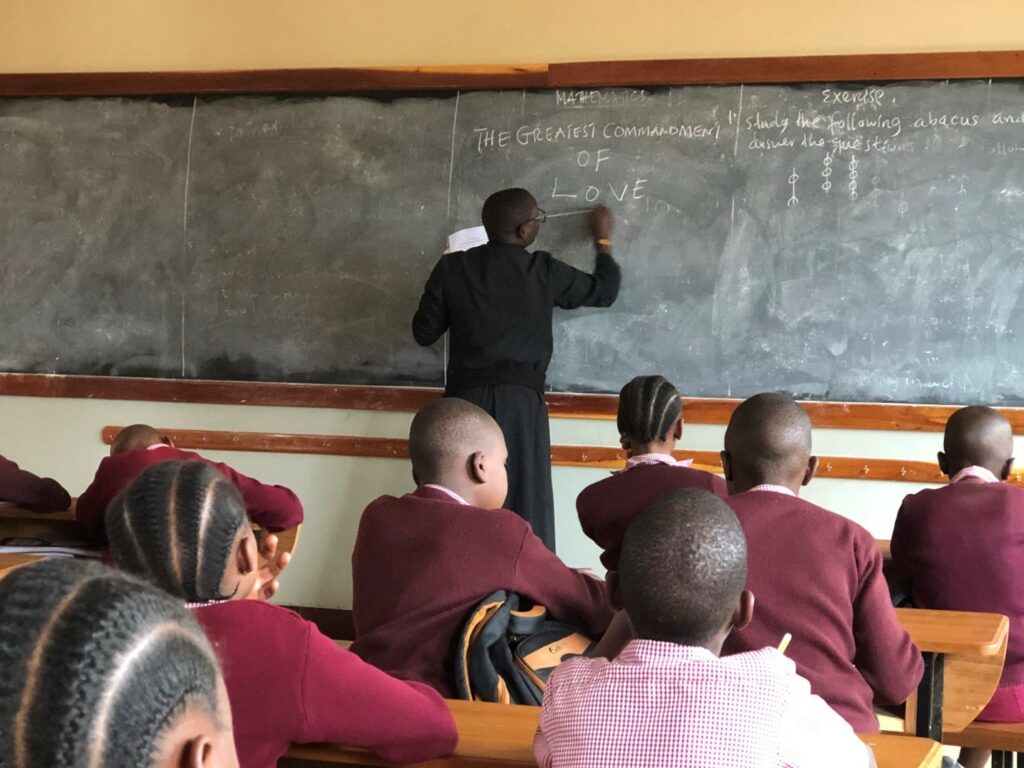
Most of the students in this class are 11 or 12 years old. One thing that was interesting was that the boys wanted to answer questions and to read, but the girls were very shy. Fr. Yohana insisted, however, that the girls take their turn in answering and reading.
Fr. Yohana is a very good teacher…dynamic, engaging and fun. He would say something and then he would pause and ask, “Are we together?” This is a common question that people will ask to make sure that you understand what is being said.
He asked me if I would tell the children where the Greatest Commandment came from. Thank goodness I remembered! Jesus, of course, says that the Greatest Commandment is to love God above all (from Deuteronomy 6:5), and the second is like it: to love your neighbor as yourself (from Leviticus 19:18).
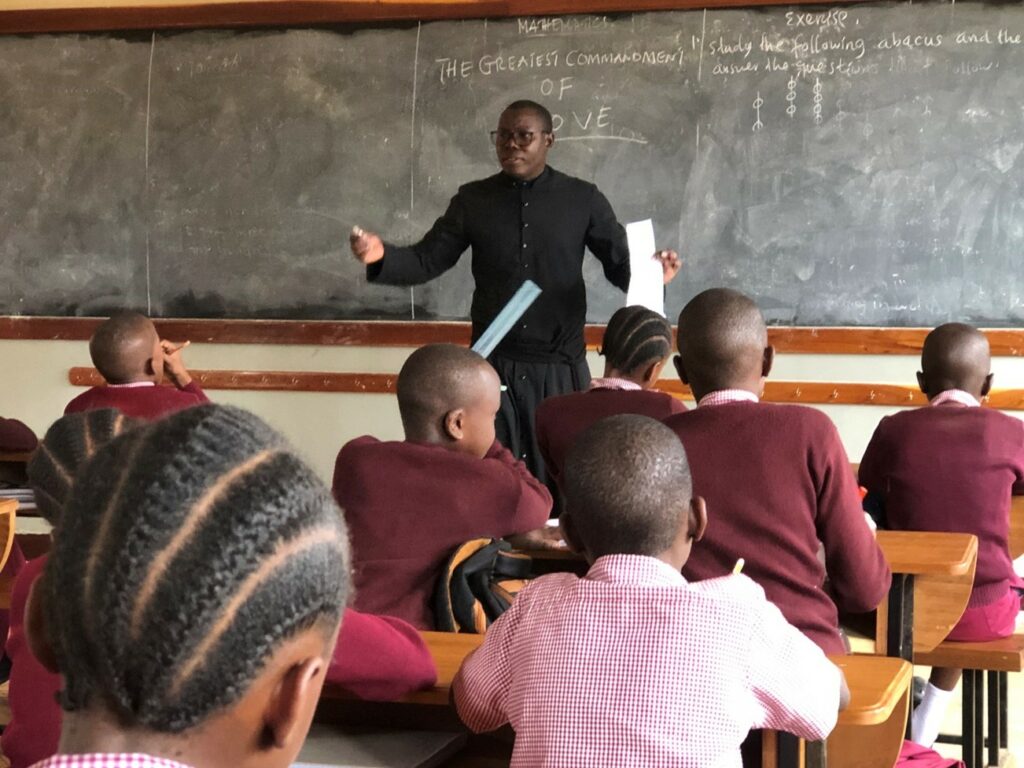
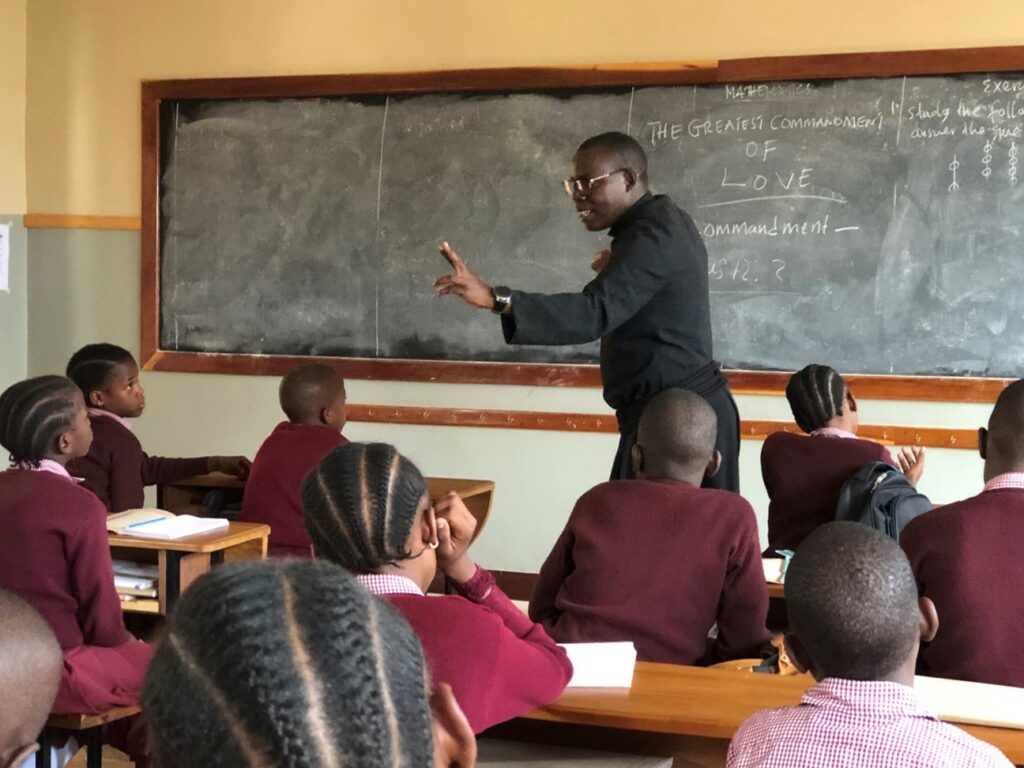
Sometimes, I fear, I was a distraction in the classroom!
More to come on www.resurrectionists.ca
Share This Post
More To Explore

6th Sunday in Ordinary Time – February 15, 2026
This week, animated by today’s readings, let us trust in the wisdom of God, and the presence of the Holy Spirit…
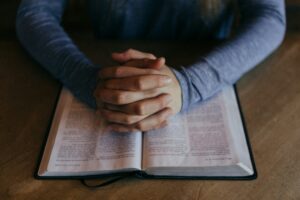
God’s Boundless Wisdom
Invited to reflect on God’s wisdom this Sunday, Sirach reminds us that our capacity to choose right from wrong – our capacity to discern – comes from God’s boundless wisdom.
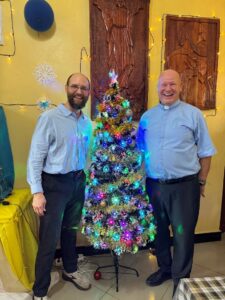
A Visit by Fr. Eric Wagner, C.R. – Fr. Jim’s Perspective
Today we have a recap of Fr. Eric’ Wagner’s visit, from Fr. Jim Donohue’s perspective.


